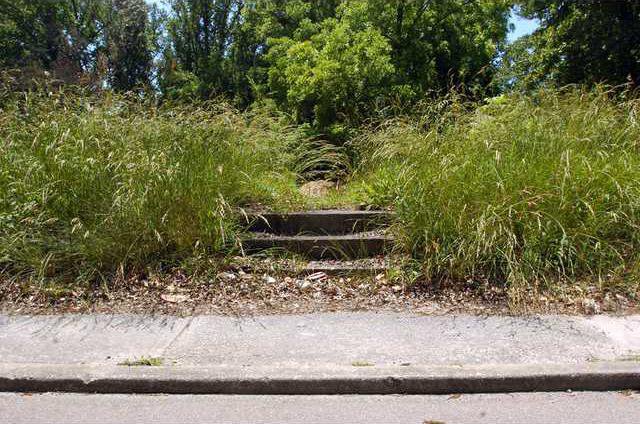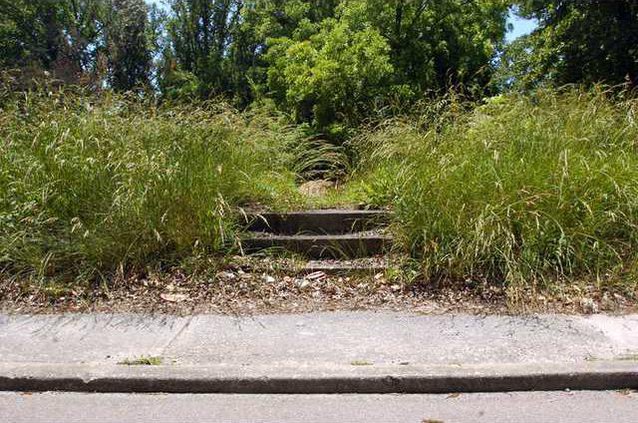As summer settles in, tall weeds and grass are a tell-tale sign that a foreclosed house is no longer a home.
Local governments have found that it is difficult to locate who is responsible for maintaining the yards of empty homes.
In the city of Gainesville, Planning Director Rusty Ligon said weeds and grass are growing out of control on some empty properties in the sunny spring weather.
Gainesville code mandates that growth cannot exceed 12 inches on residential property or 18 inches on vacant lots.
“We have seen several more of these overgrown lots,” Ligon said. “I think it’s a combination of the rain and the weather we’ve had.”
Ligon said when a home has been foreclosed, the bank that owns it is responsible for keeping the yard up to city code—but finding them can be a challenge.
“We’ve got to find out which bank now owns the property,” Ligon said. “Sometimes they’re out of state and that makes it even tougher.”
The code is in place to maintain a neat appearance throughout city limits. Long grass and weeds can also become a habitat for unwanted rodents and other critters, Ligon said.
Andre Niles, director of Hall County’s Marshals, said there is no ordinance on the books regarding grass in the county.
“We don’t regulate the height of grass,” Niles said. “We get complaints but there’s nothing we can do about it.”
Niles estimates that about 20 percent of the county’s code enforcement calls are in regard to foreclosed or abandoned properties.
Tall grass is one of the first complaints neighbors will have once a home becomes vacant, he said.
“It’s just in disrepair because no one’s doing anything,” Niles said.
The situation is often not as bad in neighborhoods with homeowners associations where people will pitch in to maintain the appearance of a subdivision.
“Some have got people cutting the entry ways and will cut on the foreclosed properties,” he said.
Niles said in homes that are occupied, tall grass often accompanies code violations like junk cars in the yard. He said people often will cut their grass when they are asked to clean up other things in their yards.
Ligon said the city rarely issues citations because they give property owners a warning to clean up their yards first.
“We try to educate them on the city’s code first off,” Ligon said. “We find they remedy the situation pretty quickly.”

